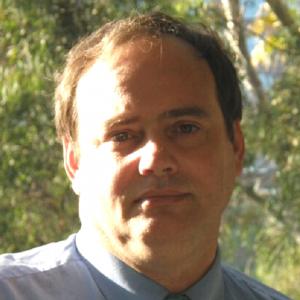Computational Biology Expert Dr. Eric Thomson-Wasiolek Recently Featured on Close Up Radio
CASTRO VALLEY, CA, UNITED STATES, June 23, 2025 /EINPresswire.com/ -- It is a known fact that advances in medicine are occurring all the time, and more rapidly than ever. Whether it’s the discovery of new ailments, and especially the treatments to counter these ailments, it seems that the only constant is change. Our guest is a proponent of what he calls a “revolutionary new area of science,” that will drastically improve medicine as we know it. He will discuss what this science is, along with its applications. This is the perspective and expertise of Dr. Eric Thomson-Wasiolek.
Dr. Eric Thomson-Wasiolek is an expert in the field of computational biology and a proponent in the use and application of machine learning to synthetic biology. He was recently inducted into Who’s Who in America. You can look him up by simply googling “Eric Wasiolek.”
“In my earlier career I worked in the computer industry – primarily in networking and database,” Dr. Thomson-Wasiolek recalls. “I worked in an area called heterogeneous distributed computing where you have software that runs on multiple computers connected through a network. Those computers are from different vendors running different operating systems – storing and retrieving information to and from these multiple machines. Most of my career was in product marketing which is between engineering and sales. You help define the future products. Along the way, I earned a Master’s in Computational Molecular Biology, which combines mathematics and computer science with molecular biology and a Doctorate in Computer Science and an MBA. The Master’s Thesis was done at Stanford.”
“This has been relevant to the direction that I have been going,” he adds. “While I am retired, I will consider coming out of retirement for a significant job opportunity in Biotech applying machine learning to synthetic biology. Understand that applying machine learning to synthetic biology IS a computational biology revolution. Companies should be interested in this technology as it will both decrease research costs and accelerate generating additional revenues through new products.”
For these two interviews, Dr. Thomson-Wasiolek will discuss what machine learning is and applying machine learning to synthetic biology and its applications in science and medicine. “There’s a whole revolution happening in that area,” he declares, “representing the future of technology.”
Regarding machine learning, there is often a misconception as to how similar and different it is to artificial intelligence, “Machine learning is only a fraction of what artificial intelligence is about – perhaps only one-tenth of it,” Dr. Thomson-Wasilek clarifies. “There are many areas of artificial intelligence and computational biology which don’t use machine learning.” And of course, many areas of computing don’t use AI or machine learning at all.
“You are taking data and finding patterns in the data to produce outputs and make predictions,” he adds. “Machine learning is not programmed but trained.”
“Synthetic biology is the field and industry where biological entities are modified or created de novo,” Dr. Thomson-Wasiolek defines. “Examples are creating new genes as with genetic engineering, new proteins, or modifying a living organism such as a bacterium.”
Some aspects of synthetic biology simply include pathway engineering, bio-parts, genetic circuits, cell free systems, DNA databases, nano-robots, reprogramming cells, computational protein design, reprogramming aging, and genetically modified organisms.
“One practical application of machine learning to synthetic biology is the acceleration of drug discovery,” Dr. Thomson-Wasiolek shares. “Another application is the use of medical imaging to verify a tumor in a certain tissue. You can take a medical image and run it through a machine learning program that performs object recognition. Cancer is a genetic disease, and you can use machine learning to determine mutations in gene sequences that cause the cancer” and then direct a tool like the protein CRISPR to excise the malignant gene curing a genetic disease like Sickle Cell Anemia.”
While there are medical applications and research, there are also non-medical applications such as performing overall biological research. It can be used to research more about any organism including human beings.
“Machine learning and synthetic biology are only dangerous if you are using it to create biological weapons,” Dr. Thomson-Wasiolek assures. “In addition, COVID was not a use of synthetic biology but instead created by nature. It was synthetic biology that created the mRNA vaccine.”
“Learn what machine learning AI and synthetic biology are really about,” concludes Dr. Thomson-Wasiolek. “It will really change the future.”
Close Up Radio recently featured Dr. Eric Thomson-Wasiolek in a two-part interview with Jim Masters on Tuesday June 17th at 4pm Eastern, and with Doug Llewelyn on Tuesday June 24th at 4pm Eastern
Listen to the Podcast
https://podcasts.apple.com/us/podcast/part-1-close-up-radio-spotlights-computational-biology/id1785721253?i=1000713513691
https://www.iheart.com/podcast/269-close-up-radio-242020413/episode/part-1-close-up-radio-spotlights-281838567/
https://open.spotify.com/episode/6GYyyZRJM5e519mDqJc5Fo
Lou Ceparano
Close Up Television & Radio
+ +1 631-850-3314
email us here
Visit us on social media:
Facebook
Legal Disclaimer:
EIN Presswire provides this news content "as is" without warranty of any kind. We do not accept any responsibility or liability for the accuracy, content, images, videos, licenses, completeness, legality, or reliability of the information contained in this article. If you have any complaints or copyright issues related to this article, kindly contact the author above.

